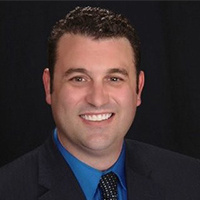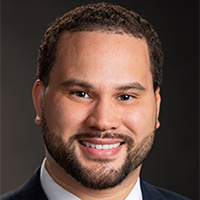 Sacramento Family Law Lawyers, California
Sacramento Family Law Lawyers, California
Sponsored Law Firm
-
 x
x

Click For More Info:
-
Aghishian Law Corporation
16133 Ventura Blvd 7th Floor Encino, CA 91436» view mapDivorce & Family Law 30 Years Of Experience
Attorney Aghishian's in-depth experience and appreciation for the State of California make him uniquely qualified to advocate for the rights of his fellow Californian clients.
800-741-7170
Includes: Collaborative Law, Domestic Violence & Neglect, Paternity, Prenuptial Agreements
Sponsored Lawyers
1-10 of 54 matches
Divorce & Family Law, Family Law, Child Custody, Child Support, Collaborative Law
Mr. Bartholomew, a native of Elk Grove, California, received his Bachelor of Arts degree in Political Science at the University of California, Davis, in 1968 and his Juris Doctor in 1971 from the same institution. Formerly a partner for 15 years with the law firm of Desmond, Miller, Desmond & Bartholomew, he co-founded the firm of Bartholomew & Wasznicky in 1989. He is a retired captain in the United States Army Reserve and is a licensed real estate broker. In addition to membership in the California Bar, he is admitted to practice before the United States Supreme Court, the United States Tax Court, and the United States Court of Claims. Mr. Bartholomew is a Fellow of the American Academy of Matrimonial Lawyers, as well as the International Academy of Matrimonial Lawyers, and is certified by the State Bar of California as a Family Law Specialist.
(more)Divorce & Family Law, Domestic Violence & Neglect
Kevin M. Cecil is a lifelong Sacramento resident with a lifelong commitment to serving the community. Mr. Cecil graduated from California State University, Chico, and received his law degree from the University of the Pacific McGeorge School of Law in Sacramento. With experience in a variety of legal areas and settings, including criminal defense, personal injury, family law, and civil litigation, Mr. Cecil chose to concentrate on family law. He has assisted clients in many areas of family law, including guardianships, dependency actions and domestic violence restraining orders.
(more)Accident & Injury, Business, Lawsuit & Dispute, Real Estate, Family Law
When you need an attorney who is experienced and aggressive, look no further than The Law Offices of Robert M. Merritt. Located in Sacramento, Calif., attorney Merritt of The Law Offices of Robert M. Merritt provides knowledgeable legal counsel on every case he undertakes. Genuinely concerned about his clients’ well-being, attorney Merritt is hard-working and attentive. He seeks to get the most favorable outcome each and every time.
(more)Family Law, Accident & Injury, Real Estate, Business, Estate
Mr. Castro is an attorney who prides himself on advocating aggressively on behalf of all clients. Having been recognized as a top tier attorney by Super Lawyers (Rising Star, 2019-2020) and Lawyers of Distinction, Mr. Castro started his own practice to represent members of communities with poor access to critical services. To that end, it is Mr. Castro's chief goal to effect change for his clients in the areas of business litigation, personal injury, family law, and trust and estates law. In those personal injury cases, he has extensive experience in matters involving catastrophic injury, wrongful death, auto accidents, pedestrian/bicycle accidents, dog bites, dangerous property condition, premises liability, slip and fall, trip and fall, insurance bad faith, government tort claims, construction site accidents, on the water injuries, and defective products/products liability claims. In matters of business litigation, Mr. Castro has experience with matters involving breach of contract, tortious interference with contracts or business relationships, business partner disputes, real estate disputes (including both residential or commercial real estate), business entity formation, contract review, breach of fiduciary duty, and other matters arising from the day-to-day operations of running a business. As for matters involving family law, Mr. Castro handles matters requiring financial and property division concerns, child custody disputes, child support, modifications of family law orders, enforcement of family law orders, and document preparation/review. Mr. Castro also helps his clients plan for the efficient and effective transfer of assets to spouses, to younger generation family members, to other persons clients wish to benefit, and to charities. Mr. Castro's trust and estate practice involves the preparation of trust agreements, wills, powers of attorney, medical directives, and closely held business structures, including partnerships, limited liability companies, and corporations. Mr. Castro graduated from Florida Coastal School of Law in 2013 and he is admitted to practice before all the courts in the State of California including the Eastern, Northern, Southern, and Central Districts of the United States District Courts of California. Mr. Castro firmly believes the key to securing a favorable result for all his clients is by exercising the highest degree of diligence and perseverance. Mr. Castro takes each case personally and always strives to obtain the best possible results for each client. During his spare time, Mr. Castro enjoys spending time with his family, traveling, wine tasting, and volunteering in any activity that benefits children. He served as a Guardian Ad Litem for the Florida Guardian Ad Litem Program in Jacksonville, Florida. He also coaches youth sports and most recently coached his son's baseball team in Rocklin Little League.
(more)Divorce & Family Law, Family Law, Divorce, Child Custody, Child Support
Lauren Pruett is a Partner and shareholder of Gale, Angelo, Johnson & Patrick P.C.. Lauren oversees our Family Law Department. She focuses exclusively on family law issues including: divorce, custody, spousal support, child support, domestic violence, guardianships, adoptions, grandparent visitation. Lauren dedicated her focus to family law from the start of her legal studies, taking courses dedicated to the field such as family law, community property, family law trial skills and juvenile law. Additionally, she clerked for the Honorable Thadd Blizzard for one year at the William R. Ridgeway Family Relations Courthouse and worked as a certified law student for a local family law firm while pursuing her legal studies. Lauren graduated cum laude from California State University Sacramento, receiving her bachelor’s degree in Psychology. Lauren went on to receive her Juris Doctorate from the University of Pacific McGeorge School of Law obtaining honors in her clerkship positions and her practical and persuasive legal writing courses. Notable facts: Lauren is a dog mom, spin fanatic, wine lover and avid certified scuba diver. In her spare time she enjoys traveling adventures with her husband.
(more)Divorce & Family Law, Family Law
Natalya L. Kalinovskiy began her legal career after receiving her juris doctor from McGeorge School of Law at the University of the Pacific with concentrations in trial advocacy and criminal litigation. While in law school Ms. Kalinovskiy interned for Sacramento County, the Federal Government and private law firms. For over three years, Ms. Kalinovskiy worked for a well-known private law firm in downtown Sacramento practicing criminal law, civil litigation and family law. Since joining Gale, Angelo, Johnson & Patrick P.C. Ms. Kalinovskiy practices exclusively family law including divorce, domestic violence restraining orders, child custody, child support, spousal support, prenuptial and postnuptial agreements. Ms. Kalinovskiy grew up in Southern California and attended UC Riverside for undergrad. Ms. Kalinovskiy is fluent in Russian, loves spending time with family and enjoys traveling.
(more)


 Ara Aghishian Encino, CA
Ara Aghishian Encino, CA Practice AreasExpertise
Practice AreasExpertise






